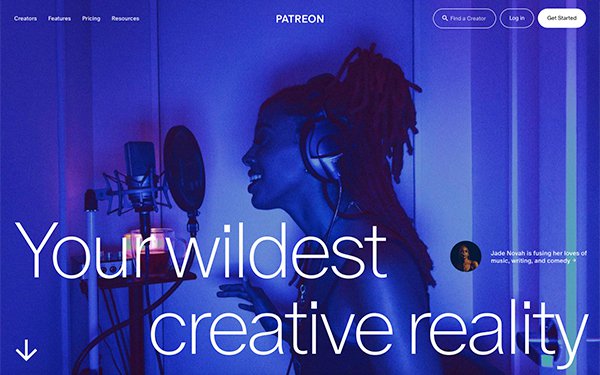
Patreon, a platform for content creators, is pressing a
federal judge to strike down one of the country's only federal privacy law -- a 36-year-old statute that restricts businesses from disclosing information about the movies, tv shows and videos people
watch.
Patreon is one of numerous businesses currently facing class-action complaints for allegedly disclosing identifying information about users, along with the videos they accessed, to
Facebook via the Meta Pixel tracking code. Other companies sued over similar allegations include the Philadelphia Inquirer, Gannett, Epoch Times, WebMD,
Paramount and Dotdash Meredith.
advertisement
advertisement
The complaints
against Patreon and others allege they violated the Video Privacy Protection Act (VPPA), which prohibits companies from sharing identifiable information about people's video-viewing history without
their consent. Congress passed that law in 1988, after a Washington, D.C. newspaper obtained Supreme Court nominee Robert Bork's video rental history from a local store.
Patreon claims
the statute violates the First Amendment for numerous reasons, including that it restricts truthful speech.
“There is generally no state interest in prohibiting a speaker like Patreon
from disclosing lawfully acquired, accurate factual information about a consumer,” the company contended in a motion asking District Court Magistrate Joseph Spero in San Francisco to strike down
the law.
While many companies facing suit over the video privacy law have sought dismissals, Patreon appears to be the first to contend the federal law violates the First Amendment. (Other
publishers have argued that a comparable Michigan privacy law violates the First Amendment. A federal district court judge in New York rejected those arguments in 2016.)
The company says in
papers filed Friday with U.S. District Court Magistrate Joseph Spero in San Francisco that the law is too broad because it “applies to a startlingly broad swath of constitutionally protected,
non-commercial speech,” such as political speech and speech in educational institutions.
Patreon also suggests the law doesn't actually protect consumers' privacy because it only
restricts companies from disclosing titles of videos, but not other information about them.
Nothing in the law prevents a video provider from “disclosing the consumer’s name with
the video’s subject matter, performers, content, political slant, violent nature, pornographic nature, and every other detail” except the title, Patreon writes.
Additionally,
Patreon argues, the law “was enacted for the express purpose of silencing disclosures about political figures and their video-watching.”
Civil rights groups have asked Spero to
reject Patreon's arguments.
In a proposed friend-of-the-court brief filed late last year, the Electronic Frontier Foundation, Center for Democracy & Technology and ACLU argue that the
video privacy law protects consumers' First Amendment rights by guarding against “unknown and nonconsensual disclosure of people’s private video viewing habits.”
“People using video services would be chilled from viewing content -- and being inspired by it -- if they knew services were in the business of freely disclosing their viewing
histories,” those groups write.
The arguments come in a lawsuit dating to May 2022, when Patreon subscribers including California residents Brayden Stark and Judd Oostyen claimed in a
class-action complaint that the company was violating the video privacy law.
They alleged Patreon transmitted their “viewing choices” to Facebook, along with their Facebook
identifiers, via the company's Pixel -- a tracking tool.
Patreon urged Spero to dismiss the case at an early stage for several reasons, including that the video privacy law violates the First
Amendment.
Last February Spero rejected Patreon's argument on that point as premature, but indicated he would reconsider after more evidence had been developed.
Several months later,
Patreon sought summary judgment on a motion seeking to invalidate the video privacy law.
The Biden Administration weighed in against Patreon.
“Restricting the ability of those
who possess a consumer’s video purchase, rental, or request history to disclose such information directly advances the goal of keeping that information private and protecting consumers’
intellectual freedom,” the Department of Justice wrote in a brief filed late last year.
“And the lawsuits that have credibly alleged VPPA violations over the years -- and the
explosion of recent VPPA cases -- demonstrate that the disclosures the statute seeks to prevent are a legitimate concern,” the Justice Department added.
Spero is expected to hold a
hearing in the matter in March.